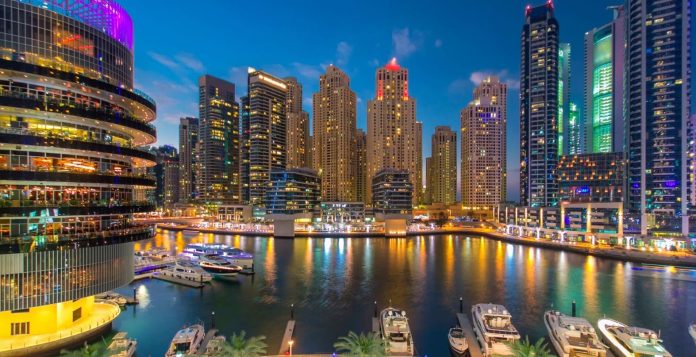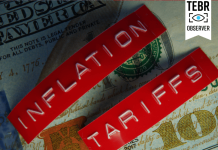The United Arab Emirates (UAE) has been at the forefront of real estate development, showcasing a remarkable vision for urban transformations and mega projects. With its booming economy and ambitious goals, the UAE has emerged as a global hub for innovation, luxury, and architectural marvels. In this article, we will explore the future of real estate development in the UAE, focusing on the mega projects and urban transformations that are set to shape the country’s landscape in the coming years.
Vision 2021: A Catalyst for Transformation
Under the visionary leadership of Sheikh Mohammed bin Rashid Al Maktoum, the UAE launched Vision 2021, a comprehensive roadmap to diversify the nation’s economy and create a sustainable future. Real estate development plays a pivotal role in this vision, with an emphasis on creating world-class infrastructure, vibrant communities, and sustainable urban environments.
Dubai Expo 2020: A Game-Changer for Real Estate
The highly anticipated Dubai Expo 2020, now rescheduled to 2022 due to the global pandemic, is set to be a game-changer for the UAE’s real estate market. The Expo aims to attract millions of visitors from around the world, and the associated infrastructure developments and urban transformations have already made a significant impact on the sector. Projects such as Dubai South, which includes the Al Maktoum International Airport and the Expo 2020 site, are poised to leave a lasting legacy on the country’s real estate landscape.
Mega Projects: Pushing the Boundaries of Innovation
The UAE is known for its mega projects that push the boundaries of innovation and redefine urban living. One such example is the futuristic city of Neom in Saudi Arabia, near the UAE border, which is being developed with a focus on sustainability, technology, and livability. Closer to home, the UAE is also home to awe-inspiring projects like the Palm Jumeirah, an artificial island that has become an iconic symbol of luxury and opulence.
Smart Cities: Embracing Technology for Efficiency
Smart cities are a key component of the UAE’s real estate future. Dubai’s Smart City initiative aims to leverage cutting-edge technologies to enhance efficiency, sustainability, and the quality of life for residents. Projects such as District 2020, the post-Expo transformation of the Expo site, will showcase advanced technologies and intelligent urban planning to create a connected and sustainable community.
Sustainable Development: A Green Agenda
Recognizing the importance of sustainable development, the UAE is committed to integrating environmental considerations into its real estate projects. Masdar City in Abu Dhabi is a prime example of the country’s green agenda, featuring renewable energy sources, sustainable transportation, and low-carbon buildings. The UAE’s commitment to sustainable development is not only beneficial for the environment but also enhances the attractiveness of its real estate sector to investors and residents alike.
Real estate in Dubai has a lot of potential and all you need to do is to find the perfect guide such as ThinkProp. ThinkProp offers real estate courses for property brokers, valuators, surveyors, and auctioneers. Their certified courses allow you to get your real estate professional license.
Affordable Housing: Meeting the Needs of the Masses
While the UAE is renowned for its luxury real estate, there is also a growing focus on providing affordable housing options to cater to the needs of the masses. Initiatives such as the Mohammed bin RashidAl Maktoum City project aim to address the demand for affordable housing. The project includes the development of several residential communities that offer reasonably priced housing options, making homeownership more accessible to a wider segment of the population.
Tourism and Hospitality: A Driving Force
The UAE’s tourism and hospitality sector has been a driving force behind the country’s real estate development. The rapid growth in visitor numbers, coupled with the country’s ambition to become a global tourism hub, has led to an increased demand for hotels, resorts, and luxury residences. Projects like the Dubai Creek Harbour, set to be home to the tallest tower in the world, and the Deira Islands, a multi-billion-dollar leisure destination, cater to this growing demand and contribute to the diversification of the UAE’s economy.
Integrated Communities: Creating Livable Environments
The future of real estate development in the UAE goes beyond just buildings and infrastructure; it focuses on creating integrated communities that offer a holistic living experience. Developments like Dubai Hills Estate and Yas Island in Abu Dhabi emphasise the concept of community living, with a range of amenities such as parks, schools, healthcare facilities, and entertainment options, all within close proximity. These integrated communities are designed to foster a sense of belonging and provide residents with a convenient and enriching lifestyle.
Mixed-Use Developments: Blurring the Lines
Mixed-use developments are gaining popularity in the UAE, as they combine residential, commercial, and recreational spaces within a single project. These developments offer a unique blend of live, work, and play environments, reducing the need for long commutes and enhancing the overall quality of life. Notable examples include Dubai Marina, Downtown Dubai, and Al Maryah Island in Abu Dhabi, which seamlessly integrate residential towers, office spaces, retail outlets, and leisure facilities into one vibrant urban setting.
Cultural Landmarks: Preserving Heritage
Preserving the UAE’s rich cultural heritage is a significant aspect of real estate development. The UAE has been investing in the restoration and construction of cultural landmarks that serve as symbols of national pride and attract visitors from around the world. Projects like the Louvre Abu Dhabi, Qasr Al Hosn, and the Al Shindagha Museum aim to showcase the country’s history, art, and traditions while creating unique spaces for cultural exchange and learning.
International Investments: Attracting Global Players
The UAE’s real estate sector has been successful in attracting international investors and developers, further fueling its growth. With favourable business conditions, robust infrastructure, and a strategic location connecting Asia, Africa, and Europe, the UAE offers lucrative investment opportunities. The presence of renowned developers and architects from around the world has contributed to the creation of iconic projects and architectural masterpieces, cementing the UAE’s position as a global hub for real estate innovation.
Conclusion
The future of real estate development in the UAE looks promising and visionary. With ambitious projects, sustainable initiatives, and a focus on creating livable communities, the UAE is well-positioned to continue its transformation into a global real estate destination. As the country diversifies its economy and invests in cutting-edge technologies, it is likely to attract more investors, residents, and visitors, further solidifying its reputation as a leading force in the world of real estate development.


































